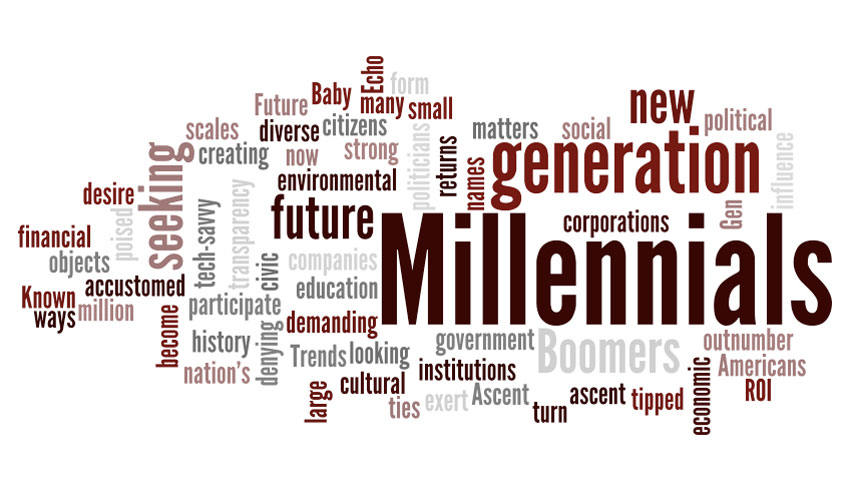Recently, Simon Sinek’s video on Millennials, the generation born between 1980 and 2000, has been creating a buzz online.
In the video, he talks about dealing with Millennials in the workplace with some astute wisdom. If you haven’t seen it yet, it will be a few minutes very spent.
After watching this video, I began to think of prescriptive ways in which we can positively influence Millennials to counter some of the negative things Simon Sinek has observed about them. Granted, not every Millennial fits the general mold and coaching is individual, but the times do shape us in some way or another.
Here are 5 Ways to Better Influence Millennials
1. Re-Parent When Needed
According to Sinek, Millennials were constantly told they could be anything they want and received trophies even when undeserved. Unfortunately, this means supervisors will have to re-parent Millennials in the workplace in order to help them become influential leaders. A first step of the re-parenting process is giving the Millennial team member a clear picture of those areas in which he/she really excels and those in which they really don’t. In effect, you are clearing out the internal participation trophies and showing them what they really should be rewarded for.
Millennial managers must kindly help team members understand what their strengths are and are not, then coach them in how to optimize their strengths and make their weaknesses irrelevant as much as possible. Just because the Millennial feels he or she can do something doesn’t mean we should let them as leaders.
Leaders must also model and share with these developing team members how to handle personal relationships. A friend was recently viewing his neighborhood’s Facebook group and noticed how quickly the Millennials in his neighborhood “outed” someone on Facebook for driving too fast, letting their dog stay out in what the poster thought was too cold, etc. My friend asked his neighbor: “Have you knocked on their door and talked about this with them?” The response he usually got was a “Why would I do that?” An oppositional and defiant tone may get attention and likes but it rarely influences others to change the behavior we want them to change. As mundane as it seems, the screen-generation often lacks interpersonal human skills needed to influence and transform the behaviors of others. “Here is how you could have said this to accomplish what you wanted,” will be a familiar refrain to the leader of Millennials. It’s important not to think, “You should know this; it’s basic human relationship skills.” They don’t. Coach them.
2. Create Intentional Focus Times Absent of Electronic Screens
When you have a brainstorming session, do so on a whiteboard. When you have a meeting, buy a “phone cage” for all electronic devices to be placed in on silent mode before sitting at the meeting table. Have mandatory team lunches where there is no technology and NO agenda other than interpersonal relationships. As people understand they are truly cared for, they will allow you to influence them to a greater degree because they will have a trust that you have their best interest at heart. Create intentional structures to show Millennials the balance they need and don’t realize they are craving.
3. Teach Human Skills
We often have training programs for hard-skills like coding and increasing sales. Move from seeing team members as plug-in-play automons and invest in the long-term by investing in the person. Most employees won’t flourish until year 3, and their most productive years won’t even start until after 5-7 years in the environment. By building them as people, we are creating the foundation for them to succeed in helping our organization the most.
4. Talk Them Off The Ledge/Keep Them On the Deck
Millennials, used to instant information and instant response capabilities, are prone to be quick, make rash decisions, and even to jump ship. They can make a decision that carries much weight in a millisecond. By slowing them down and talking through the real-world ramifications and consequences of their decision, you will actually be coaching them not only on that specific decision but also in the decision making process, as a whole. This will create wiser team members who make better decisions for themselves and the organization.
5. Provide More Frequent Feedback
While twice-yearly reviews might be enough for older workers, it typically won’t be enough for Millennials. They have a desire to stand out and show how different they are. Some Millennials may take the lack of feedback or review to mean that they are not appreciated.
6. Engage in Helping Them . . . Regardless
It’s tough in business when we are held to the bottom line or in a non-profit if donations drop. Should we have to coach Millennials? No. But what if we don’t? Worse, what if we invest in them, and then they bail anyway? My question to you: “What other option do you have?” You can’t afford to merely skip hiring a whole generation. By 2025 Millennials will make up 75% of the world's working population. Having no Millennials on staff means your company or organization will cease to exist. Make a commitment to helping others, even if you aren’t sure they are going to help you back. Ultimately, you’ll create a culture that Millennials and the generation after them, called Centennials, will want to be a part of. Everyone wants to experience care and concern, even if it seems strange at first. We, as humans, are drawn to it as a moth is to the flame.
You CAN break through Millennials’ tendencies and create a space where they learn to receive critique couched in care. You CAN help them grow - You CAN influence this challenging but needed generation.


